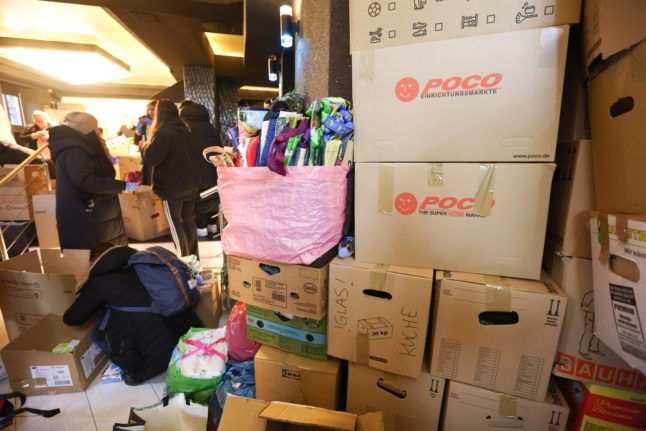NUCLEAR
Swiss Defence Minister slams “Atomic Hysteria”
Swiss defence minister Ueli Maurer has said he sees no reason to reassess Switzerland's attitude to nuclear power following the Fukushima crisis.
Published: 25 March 2011 11:55 CET

Swiss Federal Chancellery
The situation at the Japanese nuclear plant following the 13th March earthquake and tsunami has prompted a fierce debate in Switzerland about the safety of nuclear power.
Switzerland gets about 40 percent of its total energy needs from nuclear power. The country can count on four nuclear power plants with five reactors in operation, most of them located in northern and central Switzerland. It also has nuclear research reactors.
As a consequence of the nuclear crisis in Japan, debate in this tiny landlocked country has been reignited, and plans to build a fifth plant have been put on hold.
But in an interview with the Tages Anzeiger newspaper, Swiss Defense Minister Ueli Maurer said there was no need to re-asses risks and health hazards following the nuclear crisis in Japan.
“I see no reason. We’ve known the dangers of nuclear energy for a long time. Just as we know that Switzerland cannot do without nuclear power in the short and medium term,” Maurer was quoted as saying by the paper. “There is no alternative than to further improve the safety of our nuclear facilities. At the moment, there is a certain “atomic hysteria.” We should remain pragmatic.”
The country has currently suspended the approval process for new nuclear sites, following calls for a review of safety standards.
“It is logical to suspend the review of applications for new sites after such an accident … and check their safety,” Maurer told Tages Anzeiger.
When asked if Switzerland will ever build a new nuclear plant, Maurer said: “The probability became smaller. I would not exclude it, anyway. In six months we will reconsider the question in a more sober way.”
Url copied to clipboard!


 Please whitelist us to continue reading.
Please whitelist us to continue reading.
Member comments